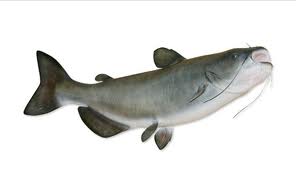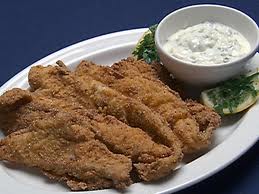 Over the past year, an astounding amount of seafood labeling fraud has been unveiled. The Boston Globe launched an investigation of 134 restaurants, grocery stores and seafood markets in the Boston area. They hired a DNA testing agency to randomly select and test the validity of seafood labeling in 183 fish samples. The results were shocking. 48% of tested species were being sold under the wrong name. For example, flounder fillet (sold for $23) at Chau Chow Seafood Restaurant in Dorchester turned out to be Vietnamese catfish (normally sold for $4 per lb); White tuna at Skipjack’s in Foxborough was found to be escolar (an oily fish not recommended for sale in the United States by the FDA due to potential health risks); Alaskan butterfish at Blue Ginger in Wellesley was revealed to be sablefish.
Why does seafood fraud exist? Sometimes fraud occurs due to a chef or distributors’ ignorance and/or difficulty differentiating one fillet from another, but the most common reason is to increase profits. A cheaper fish can be sold under the guise of a more expensive species and more times than not, the customer cannot tell the difference. It is particularly easy in the restaurant business to deceive the customer since most fish is served as fillets. Once fish is filleted, seasoned, cooked and covered in sauces, it becomes very hard to distinguish one species from another. The customer is often oblivious and the restaurant makes a bigger margin.
While most of the fraud is occurring at restaurants, there have been cases at supermarkets as well. Supermarket buyers
Over the past year, an astounding amount of seafood labeling fraud has been unveiled. The Boston Globe launched an investigation of 134 restaurants, grocery stores and seafood markets in the Boston area. They hired a DNA testing agency to randomly select and test the validity of seafood labeling in 183 fish samples. The results were shocking. 48% of tested species were being sold under the wrong name. For example, flounder fillet (sold for $23) at Chau Chow Seafood Restaurant in Dorchester turned out to be Vietnamese catfish (normally sold for $4 per lb); White tuna at Skipjack’s in Foxborough was found to be escolar (an oily fish not recommended for sale in the United States by the FDA due to potential health risks); Alaskan butterfish at Blue Ginger in Wellesley was revealed to be sablefish.
Why does seafood fraud exist? Sometimes fraud occurs due to a chef or distributors’ ignorance and/or difficulty differentiating one fillet from another, but the most common reason is to increase profits. A cheaper fish can be sold under the guise of a more expensive species and more times than not, the customer cannot tell the difference. It is particularly easy in the restaurant business to deceive the customer since most fish is served as fillets. Once fish is filleted, seasoned, cooked and covered in sauces, it becomes very hard to distinguish one species from another. The customer is often oblivious and the restaurant makes a bigger margin.
While most of the fraud is occurring at restaurants, there have been cases at supermarkets as well. Supermarket buyers can be deceived by their distributors since fish sold as frozen fillets can be difficult to identify. Sometimes, the distributor is also not at fault, but has been deceived by fish processors, importers, harvesters and/or fish farmers.
Price Chopper was quite confident that their suppliers were providing them with the correct species, but to further validate that the fish they were sourcing was in fact what it claimed to be, they hired Therion International, LLC, a DNA testing service laboratory located in Saratoga Springs, NY to conduct testing. Therion agents visited the Price Chopper Freezer warehouse in Rotterdam, NY on three separate occasions and randomly tested a total of 150 samples from 15 frozen fish fillet product lines. One to five boxes of each product line was opened and one to two fillets were selected from each box. The following species were selected for testing because they have been known to have modest to high substitution rates: catfish, cod, flounder, haddock, halibut, mahi mahi, orange roughy, red snapper, sockeye salmon, swai, swordfish and tuna.
The results of this study showed that all 150 fish fillets that were tested yielded favorable results. Not one case of fraudulent labeling was found! Going forward, Price Chopper plans to continue a periodic course of random DNA testing in order to provide customers the peace of mind that this objective verification offers.
can be deceived by their distributors since fish sold as frozen fillets can be difficult to identify. Sometimes, the distributor is also not at fault, but has been deceived by fish processors, importers, harvesters and/or fish farmers.
Price Chopper was quite confident that their suppliers were providing them with the correct species, but to further validate that the fish they were sourcing was in fact what it claimed to be, they hired Therion International, LLC, a DNA testing service laboratory located in Saratoga Springs, NY to conduct testing. Therion agents visited the Price Chopper Freezer warehouse in Rotterdam, NY on three separate occasions and randomly tested a total of 150 samples from 15 frozen fish fillet product lines. One to five boxes of each product line was opened and one to two fillets were selected from each box. The following species were selected for testing because they have been known to have modest to high substitution rates: catfish, cod, flounder, haddock, halibut, mahi mahi, orange roughy, red snapper, sockeye salmon, swai, swordfish and tuna.
The results of this study showed that all 150 fish fillets that were tested yielded favorable results. Not one case of fraudulent labeling was found! Going forward, Price Chopper plans to continue a periodic course of random DNA testing in order to provide customers the peace of mind that this objective verification offers. 